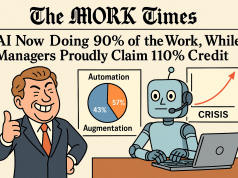The fabric of the professional employment landscape is undergoing a transformative shift, driven by the burgeoning gig economy. A term once relegated to musicians and artists, ‘gig’ has infiltrated the lexicon of the traditional workforce, denoting a freelancing or short-term contracting model that is reshaping notions of career stability and success.
As financial advisors for professionals, we are at the forefront of this seismic shift, keenly observing how the gig economy is redefining the parameters of professional employment. The rise of companies like Uber, Fiverr, and Upwork signal a paradigm shift away from the conventional 9-to-5 job towards a more fluid, project-based employment model. This trend is not confined to any single industry; rather, it is proliferating across sectors—including those, such as finance and consulting, that have historically been bastions of full-time employment.
With the ascent of the gig economy comes an attractive array of potential benefits. Professionals are empowered to handpick projects that align with their passions and expertise, enjoying an unprecedented level of flexibility and autonomy. This can lead to a more fulfilling and balanced work-life equation, as individuals tailor their career trajectories to their personal needs and aspirations.
Yet, the allure of the gig economy is not without its shadows. Many professionals are plunged into a precarious dance with instability, grappling with sporadic income streams and the absence of traditional benefits like health insurance, retirement plans, and paid leave. These challenges are compounded by the shifting power dynamics between employers and freelance professionals. In a market saturated with talent, individuals may find themselves in fierce competition for gigs, often leading to downward pressure on fees and the commoditization of specialized skills.
Moreover, the gig economy raises critical questions about job security and longevity. In a landscape where the next project is perpetually uncertain, how can professionals ensure steady career progression and financial stability? Do transient work engagements afford the same opportunities for growth and development as traditional full-time roles? These are pressing concerns that merit thoughtful discourse and strategic planning.
For the incoming generation of workforce entrants, the gig economy presents both opportunities and challenges. Young professionals may relish the flexibility and variety of gig work but may also yearn for the security and structure of established employment. As advisors, we must guide them in cultivating a diverse portfolio of skills and experiences, building resilience and adaptability for a future where the only constant is change.
Employers and organizations also shoulder a significant responsibility in shaping a gig economy that is equitable and sustainable. They must innovate to provide fair compensation, professional development, and support structures that bridge the gap between traditional employment benefits and the flexible nature of gig work. Policymakers, too, must play a role in crafting legislation and regulations that protect gig workers while fostering a dynamic, competitive economy.
The future of professional employment is not etched in stone; it is a living, evolving narrative that we are all authoring together. As we navigate the uncharted waters of the gig economy, let us proceed with a spirit of collaboration and innovation, ensuring that this new chapter in the story of work is written with wisdom, equity, and foresight.
In conclusion, the gig economy is not a fleeting trend—it’s a fundamental evolution in the way we work. As professionals, whether we’re advising clients or shaping our own careers, we must remain vigilant and adaptable, ready to embrace the challenges and opportunities this new era presents. By doing so, we can secure not just our own future, but also the future of a work environment that is inclusive, dynamic, and rewarding for all.




























